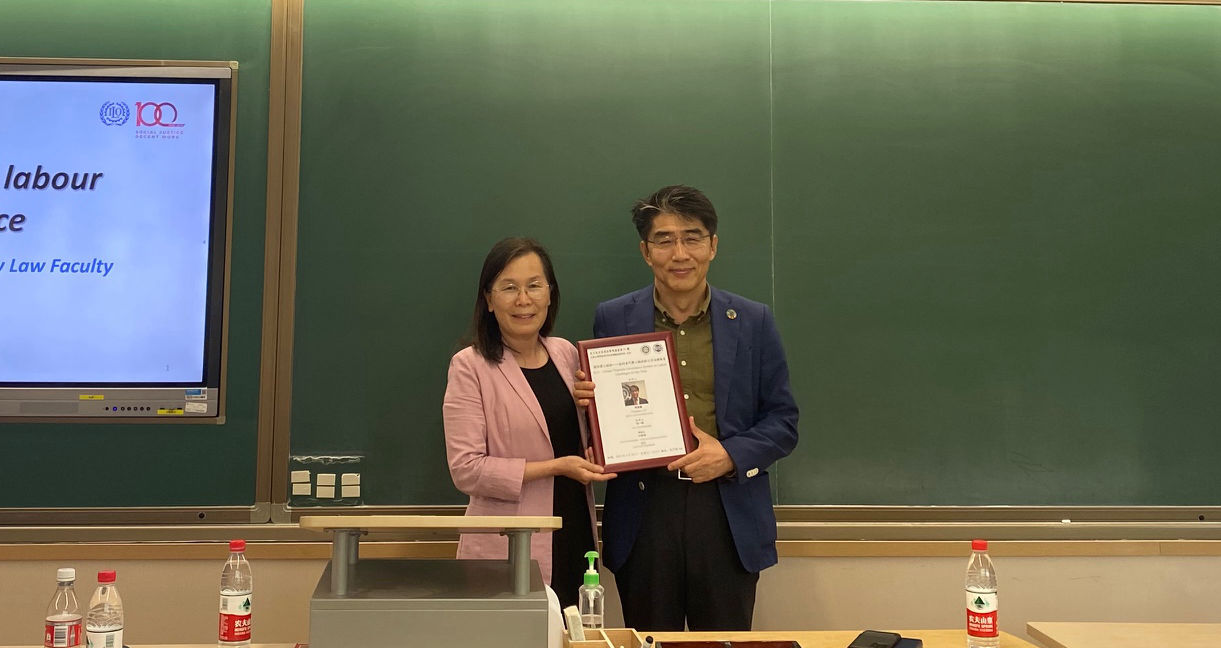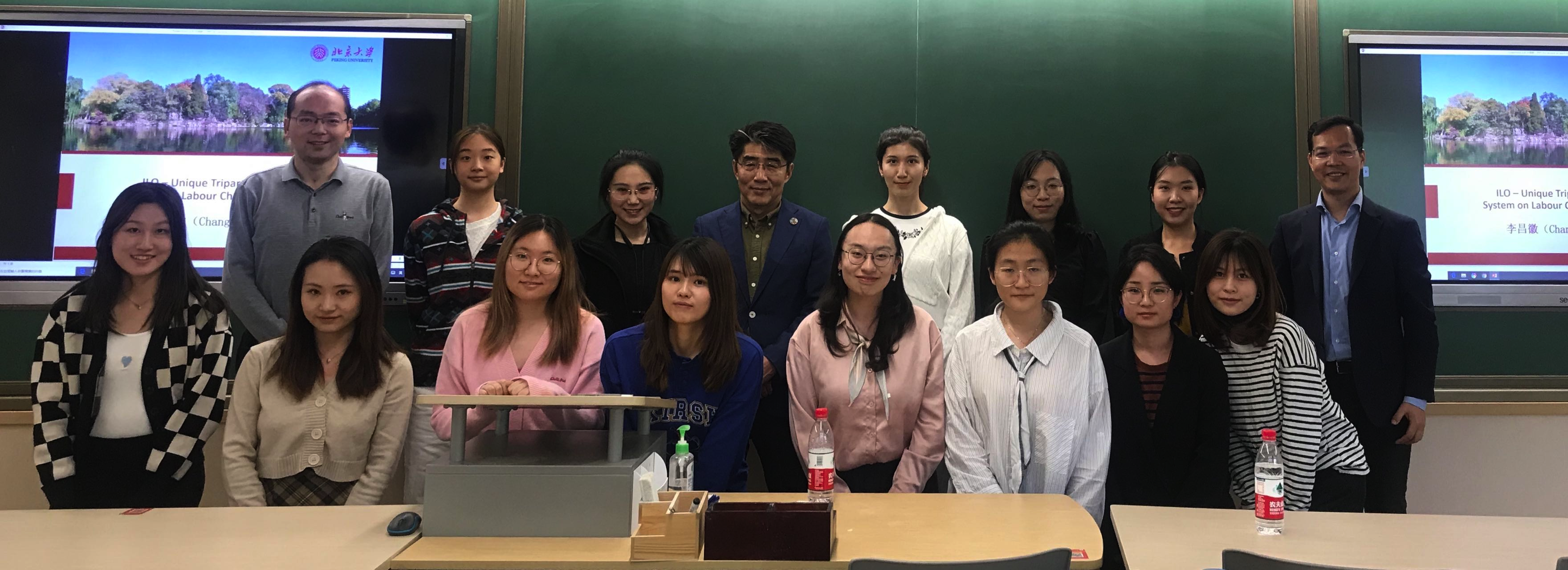Peking University Forum on Social Law: "International Labor Organization - A Tripartite System for Contemporary Labor Challenges" held successfully
Date:2022-05-07
At 15:15 on April 29th, 2022, Peking University Social Law Forum Lecture Series No. 71, "International Labor Organization - A Tripartite System for Contemporary Labor Challenges" , was successfully held in 306 Geoscience Building of Peking University. The lecture was chaired by A.P. Chen Yifeng, and given by Dr. Changhee LEE, the Director of China and Mongolia Bureau of the International Labor Organization(ILO).

Dr. LEE has been the Director of the ILO Bureau for China and Mongolia since July 1st, 2021. He served as Director of the ILO Bureau for Vietnam from September 2015 to June 2021.He joined the ILO in 1996 and has been involved in a number of major global research projects on industrial relations. He served as an Industrial Relations Specialist on the ILO's East Asia team in Bangkok (2000-2006) and as an Industrial Relations Specialist in Beijing for China, Mongolia and Vietnam (2006-2012), providing policy advice on industrial relations issues. In 2012, he returned to the ILO headquarters in Geneva as a Senior Policy Analyst in the Policy Integration Department and worked on Inclusive Labor Markets, Labor Relations and Working Conditions Branch (INWORK) as a Senior Labor Relations Specialist. He is also a member of the Director-General-appointed Task Force on Reforming ILO Field Operations.
At the beginning of the lecture, Prof. Ye Jing Yi gave a speech to welcome Dr. LEE to visit Peking University again. Prof. Ye Jing Yi mentioned that the ILO is playing an increasingly important role in the process of economic globalization, pointing out that Dr. LEE is an expert of the ILO and an "old friend" of Peking University, who has made great efforts in promoting China's labor legislation and ratification of international conventions. The ILO's unique "tripartite mechanism" for coordinating labor relations has played an effective role in China's efforts to build harmonious labor relations, which is inseparable from Dr. LEE and the ILO's vigorous promotion. Finally, she expects students to understand and care about the ILO through this lecture.
Dr. LEE introduced the past, present and future of ILO to the students from four parts: "The Origin and Evolution of ILO", "International Labor Standards System and ILO's Internal Governance", "Global Labor Governance: ILO Declaration on Fundamental Principles and Rights at Work and Global Supply Chains", and "Challenges".
First, Dr. LEE outlined the history and origins of the ILO and explained that the purpose of the ILO is to establish a global tripartite labor standards governance mechanism to achieve lasting peace. Second, Dr. LEE introduced international labor standards and the ILO's internal governance system. Then, starting from the four principles and eight conventions of the 1998 ILO Declaration on Fundamental Principles and Rights at Work, Dr. LEE further explored international labor governance, covering issues such as the "race to the bottom" debate, the Uruguayan negotiations and the WTO, and the foundations of fair globalization. Finally, Dr. LEE pointed out the challenges facing the ILO. The future of global labor and trade governance is in jeopardy due to regressive globalization, the wave of populism and protectionism, and the rise of the digital economy. The challenges faced by the tripartite cooperation include the decline of global union membership density, the decline of the influence of traditional employers' organizations and the rise of the virtual economy relative to the real economy. At the same time, the development of the ILO is also faced with challenges brought about by the rise of the digital economy and new forms of employment.
Lecture reviewer Mr. Yan Tian combined his experience in teaching labor law with relevant interview practice to lead us to consider what the real needs of Chinese workers were. We were living in a world full of conflicts, trade-offs and challenges, and the ILO was trying to solve these challenges through its efforts. According to Mr. Yan Tian, the ILO needed to answer the core question of "why does the world still need the ILO".
At the end of the lecture, students took a group photo with Dr. LEE and had an interactive session. Through this lecture, students learned about the origin and development of ILO, recognized the current challenges faced by ILO, and thought about the future direction of ILO development, which was very fruitful.

Translated by: Yin Zhuolin
Edited by: Meng Zihan



